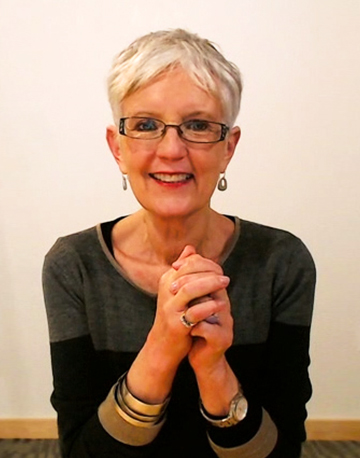How to Ease the Pain of Trauma-Induced Shame
 |
with Bessel van der Kolk, MD;
|
 |
with Bessel van der Kolk, MD; Ruth Lanius, MD, PhD; Peter Levine, PhD; Thema Bryant-Davis, PhD; Richard Schwartz, PhD; Pat Ogden, PhD; Janina Fisher, PhD; Kathy Steele, MN, CS; Stephen Porges, PhD; Martha Sweezy, PhD, LICSW; Deb Dana, LCSW; Ruth Buczynski, PhD
Sign up for the Gold Package

This is a learning community for practitioners. We can’t wait to hear what you’re going to use with your clients
But please do NOT:
- seek advice for personal problems
- ask for referrals
- post links or advertise a product
- post about technical problems
This gets better every single webcast. Thank you. As a certified trauma and resilience specialist, some concepts I was familiar with but some I was not. I learned about moral injury and actions that I can take as a therapist to help the client.
I learned about the delicate nuances of trauma work and learned something new when it comes to the relationship between trauma and moral injury and how it is represented through shame. And how this affects relationship with self and others. Also how self-harm can be a symptom not just a maladaptive behavior and it is a part/action being taken to protect a part/parts and self. I found this so insightful and helpful to keep in mind when working with clients. This awareness informs me and I appreciate the clinical insight that can be applied to traditional and holistic practice.
Parts Theory is a very helpful concept. The concrete language about parts seems like it will be very useful.
Put the critic in another room. I think this will be very helpful.
I found the info and cautions related to the potential negative effect of positive comments and encouragement a helpful awareness. I feel I have used these with the intent to give alternate perspective and support, but inadvertently created distance, which I have not understood. Thank you!!
I am gaining so much from these webinars. I wish I could afford to purchase the Gold Package, but even this much will certainly impact my effectiveness in the future. I will also look for additional information resources from the various presenters.
The ability to identify the uncomfortable “good” feeling that might trigger shame in the client. To let be with them for a while and to look carefully for micro-moments. Of micro movemnts. Thank you for these wonderful inspiring sessions specially in these times for us
Again, Very interesting and informative. There are aspects that I cannot use because they run contrary to the theory of client centred therapy. However, I noticed significant crossover between the psychotherapy outlined in this set of courses and the more shamanic content of my own training. For instance dialogue between different parts of one’s personality. The concept of reframing thoughts and the pace at which the therapy takes place is essential to the way I work and I was delighted to see this highlighted in this session. Again, I felt able to apply a range of my own tools to the scenarios outlined today. I also learned several new approaches. So sad that tomorrow is the last module; thank you.
Loved this session! I learned that shame is a form of adaptation to both befriend and minimize. There is no value in being ashamed of the shame.
Thanks for this important topic! (Not sure if last comment went through…) Shame relates to a new grief theory developed called “Socially Incongruent Grief” (SIG). If interested, google Suzette Misrachi for the 4 introductions to SIG, originally published for psychiatrists and mental health practitioners, plus research on an unacknowledged trauma and grief involving issues pertaining to “shame”.
I did google. Very interesting! Thank you for opening a new window to explore this topic further.
I learned that a suicide safety plan is not for my nervous system, but for theirs.
I learned that repetitive flashbacks are not necessarily PTSD, but that a part may be trying to self harm/self punish them.
I learned more about moral injury. The loss of ability to trust other or yourself and that ways to work with it are to have them talk to the part of them that did the injury, or tracking it somatically, slowing it down and sitting with it together. The mortal enemy of moral injury is LOVE.
p.s. I will be using a lot of the info presented here with all clients. Thanks heaps!
MANY AHA MOMENTS. Useful practical insights.
Helpful and inspiring with good practical interventions.
Thank you so much
The function of shame and how it manifests is fascinating. Thanks for this teaching.
Loving the shame session for my work with women who have had an abortion but feel shame, helping them to see what was happening for and have compassion for that past person who made that choice
Thank you so much, very insightful and practical information, much appreciated. One observation I have found very effective in the healing of trauma is working with the client on “forgiveness” , both with themselves, and over time those that may have inflicted the trauma. This can take some time, as we say one can be willing to forgive, …….but often, we can not will one self to do so.
Again, Thank you
So well thought out, presented and edited etc.. Truly expert and professional, this is the real deal
Potentially carrying the trauma of others when speaking of self-forgiveness. Realizing this and being cautious when addressing it.
when addressing it.
Thanks for all these sessions. This one was deeply personal to me as I had a lot of shame linked to my childhood trauma. It was really helpful to make that connection with not being able to feel positive emotions and self sabotage as soon as I start to succeed in something.
This session is truly helpful with applicable strategies and information that can help better the client journey and enhance the recovery process after assessing my patient’s case I will use methods such as :
– taking a step back and and access,
– stop notice the feeling and savour it for a few seconds
– moral injury work as well as creating new goodness to overcome badness
– asking how long has that feeling last ,inner critic work and core self
I hope my colleagues will also benefit from this master class in their careers and professions.
I want to thank you very much for allowing all those who are interested to learn more and better how to be a good therapist. I am 73 years old and I never tire of learning. I pay for some of your courses when my finances allow it and I take all the ones you offer for free. The greatest impression of today’s class was understanding and learning how to see and work better taking into account the nervous system. Today’s class was wonderful.
Important take away that I would apply in my practice is tolerating positive emotion as suppressing positivity is culturally learned.
Wow! So much packed into this session. I need time to process and unpack–and apply to my cases. Really appreciate the depth, conciseness, and usefulness of these webinars. Thanks!
Thank you for coming together in collaberation through the NICAMB and putting in the work it takes to write your personal modalities, share them with the world by teaching so well that each methodology can be properly learned and implemented. i learn best by reading but all of you are as clear as reading the books.
My takeaway today was that we need to teach our clients how to pinpoint the physical feeling connected to the emotional disruption connecting the adverse opposite reaction so it can be paid attention to for rebalancing.
Noticing/reflecting out loud that ‘of course racing to self-protect oneself from a building fire by rushing up the ladder, then throwing oneself out of the window to immenent injury’ doesn’t make sense’ with self-sabotage is an astute aha moment technique! That is such a perfect flow into re-balance necessity that the how to co-regulation occurs far more easily.
Moral integrity salf-assault is not only psychologically astute but philosophically and theologically astute.
Thank you so much for making it possible to participate in this masterclass. What triggered me today was the notion that shame inducing comments also can have an intercultural element. To live as a member of a minority group can mean that people of a majority have an opinion of certain behaviour that is highly appreciated within the minority group but shamed upon in the majority group. It means that as a child you can become very confused and have different parts within yourself that can shift depending on situations and different voices can rise in result of trying to protect yourself. I realized that shame is not only within culture or your own family system but much broader and much diffuser and can also be layered due to growing up in different cultural systems. Hope that I make sense in what I am saying, because it really is a revelation. I have to put it on paper or make a drawing to think this thrue. Thank you so much.
Thank you so much.